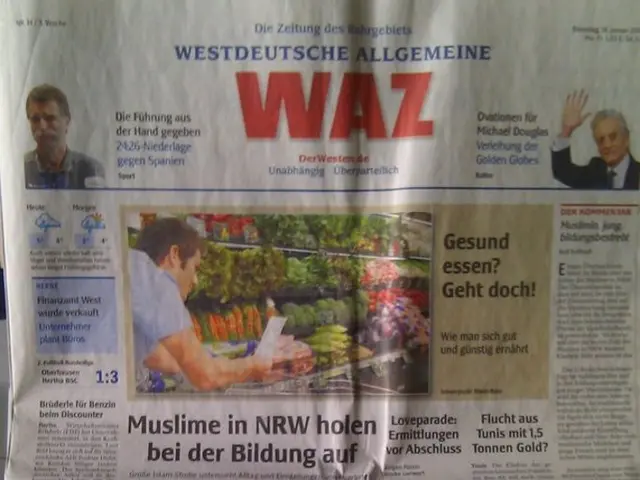Parliamentary disputes over budgeting during the 100th session - Political strife replaces concordance during the 100th session of the Landtag, as budgetary disagreements arise.
In the 100th session of the North Rhine-Westphalia (NRW) state parliament, the budget debate for 2026 took place, with the opposition factions, including the SPD, FDP, and AfD, criticizing the policy of the black-green state government across various areas.
Jochen Ott, the SPD opposition leader, expressed concerns about the black-green coalition's inability to address pressing problems in NRW, predicting that they would not solve any issues for the rest of the term ending in early 2027. Given the soaring rents and the highest property taxes in Germany in NRW, Ott suggested that the appropriate headline for the government's balance sheet would be: "You have to be able to afford it!"
The opposition also criticized the framework provided for new debts, amounting to around 4.5 billion euros. Henning Höne, the FDP state and faction leader, described the draft budget as a "tightrope walk with a blindfold." Martin Vincentz, the AfD state and faction leader, went as far as to describe the black-green coalition's policy as making Germany the "sick man of Europe" and North Rhine-Westphalia its "stuttering heart."
However, Marcus Optendrenk, the Finance Minister, defended the draft budget as sustainable and "climate-friendly," stating that new debts would only be taken up "to the extent necessary." The Greens, who are part of the coalition, also stated that they have a healthy, business-like relationship with credit-taking.
The draft budget for 2026 provides for record expenditures of 112.2 billion euros. More than a third of all state expenditures, totaling 40.5 billion euros, will flow to cities, communities, districts, and regional associations. A total of around 43.4 billion euros is earmarked for children, schools, universities, and daycare centers in the coming year, an increase of almost 16 percent.
The Finance Minister assured that a fair distribution key will be developed with municipal associations for the infrastructure fund. The state government is also implementing the old debt regulation for particularly affected municipalities, with another quarter of a billion euros available in the coming year.
The budget debate was not without its light-hearted moments. The Greens compared the FDP's stance on the debt brake to Markus Söder's love for pork knuckle, while Verena Schäffer, the Green faction leader, sharply criticized the social democrats for not differentiating or being unable to differentiate in their policy.
The federal infrastructure special fund, totaling over 21 billion euros, is not yet included in the budget plan. The concrete figures from this fund will be incorporated into a supplementary proposal for the 2026 budget after the November tax estimate. The budget also provides for cost reductions of around 3.4 billion euros compared to previous plans, with a goal to reduce 10 percent of positions in ministerial administrations within five years.
Despite the criticism, Hendrik Wüst, the head of the government, continues to defend his policy, facing accusations from the opposition leaders of having nothing to show for it. The budget debate serves as a reflection of the ongoing political tensions in NRW, with the black-green coalition defending their policies and the opposition pushing for change.
Read also:
- United States tariffs pose a threat to India, necessitating the recruitment of adept negotiators or strategists, similar to those who had influenced Trump's decisions.
- Weekly happenings in the German Federal Parliament (Bundestag)
- Southwest region's most popular posts, accompanied by an inquiry:
- Discussion between Putin and Trump in Alaska could potentially overshadow Ukraine's concerns








